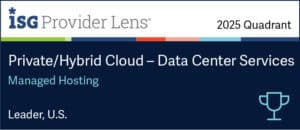
The financial industry is at a pivotal moment. With the explosion of digital banking, real-time trading, and advanced analytics, financial institutions are under unprecedented pressure to modernize their IT infrastructure. At the same time, they must navigate a complex maze of regulations, data privacy laws, and cybersecurity threats. In this landscape, a next-generation private cloud solution stands out as the optimal choice, offering unmatched compliance, security, scalability, and agility.
Financial organizations today rely on a vast array of mission-critical software. From core banking systems like Temenos and Oracle FLEXCUBE, to payment platforms such as SWIFT and Stripe, to trading terminals like Bloomberg and MetaTrader, the sector’s IT ecosystem is both diverse and demanding. Add to this risk management tools (SAS Risk Management, Moody’s Analytics), insurance management platforms (Guidewire), analytics engines (Amazon Finspace, TradingView), and accounting systems (SAP ERP, QuickBooks), and you have a landscape that is as complex as it is vital.
But hosting and managing these applications is not just a technical challenge—it’s a regulatory one. Financial institutions in the US must comply with a host of regulations, including:
The stakes are high. A single compliance failure or security breach can result in massive fines, reputational damage, and loss of customer trust.
A modern private cloud, such as G3 Private Cloud, is purpose-built to address these challenges. Here’s how:
1. Comprehensive Software Hosting
A private cloud environment can seamlessly host all major financial applications, including core banking and payments, trading, insurance, analytics, and accounting. This means institutions can run Temenos, Oracle FLEXCUBE, Bloomberg Terminal, SWIFT, SAS Risk Management, Guidewire, SAP ERP, QuickBooks, and more—all within a single, secure, and high-performance environment.
2. Regulatory Compliance at the Core
Unlike generic cloud solutions, a financial-grade private cloud integrates compliance into its very fabric. It provides:
This approach not only reduces the burden on compliance teams but also ensures that institutions are always ready for audits and regulatory changes.
3. Multi-Layered Security
Security is non-negotiable in finance. A next-generation private cloud delivers:
4. Ultra-Low-Latency Connectivity
Financial markets move in milliseconds. The ability to connect data centers, branch offices, and global exchanges with ultra-low-latency, high-bandwidth links is essential. A private cloud solution provides this connectivity, ensuring real-time trading, instant payments, and seamless digital banking experiences.
5. Unified Management and Edge Cloud
Managing a complex IT ecosystem is simplified with a unified dashboard. Institutions can monitor resources, track compliance, and optimize performance across all applications and locations. Edge cloud capabilities extend secure, compliant services to remote offices and branches, ensuring consistent governance and performance across the entire organization.
6. Sustainability and Cost Efficiency
Modern private clouds are designed for sustainability. Real-time carbon footprint analytics enable institutions to meet their ESG goals and comply with regulatory reporting requirements. At the same time, scalable infrastructure reduces both CAPEX and OPEX, allowing organizations to pay only for what they use.
Real-World Impact: Benefits for Financial Institutions
Institutions that adopt a next-generation private cloud enjoy:
In 2025, the financial sector needs more than just cloud infrastructure—it needs a partner that understands its unique challenges and regulatory landscape. A next-generation private cloud delivers the compliance, security, performance, and flexibility required to thrive in a digital-first, always-on world.
Financial institutions looking to modernize, innovate, and stay ahead of regulatory demands will find that a purpose-built private cloud is not just the best choice—it is the only choice for the future of finance.






Copyright © 2025 • All Rights Reserved